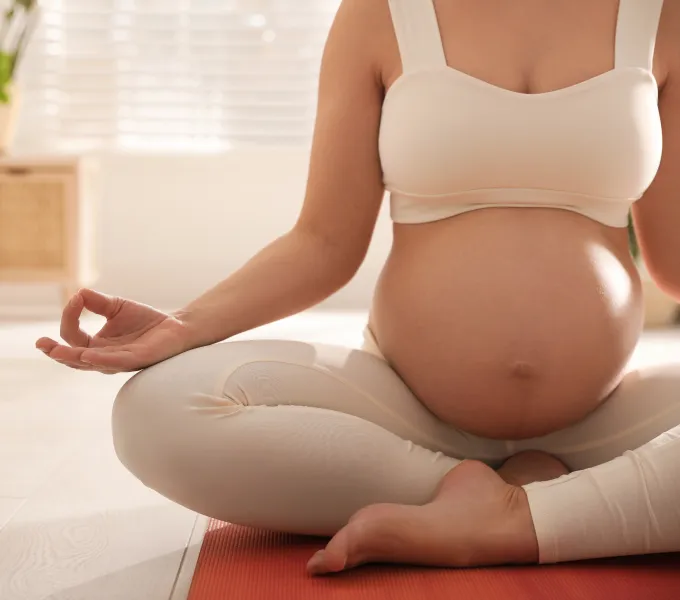
"I Was Terrified of Childbirth Pain — Until My Contractions Started"
As Origin’s Co-founder and CEO, I feel like I’ve been preparing for pregnancy and childbirth ever since we opened our doors in 2020. Once I got through morning sickness, I started working with our expert clinical team early in my second trimester. Thanks to our weekly PT sessions, I was able to manage some serious hip pain and prepare my body for the maternity marathon. I learned proper pelvic floor lengthening, kegels, safe core exercises, and even got techniques to manage the discomfort of my growing bowling ball belly.
Despite having this incredible expert support in place, there was something I still struggled with: I was TERRIFIED of childbirth pain.
My long history with vulvodynia, i.e. painful sex, made the imagined pain of pushing or experiencing a perineal tear unbearable.
My long history with vulvodynia, i.e. painful sex, made the imagined pain of pushing or experiencing a perineal tear unbearable. I kept bracing myself for that pain. I agonized over whether I was doing enough perineal massage (which is not particularly comfortable and should not be called massage, IMO), whether I had stocked up on enough numbing sprays and ice packs, and whether I'd be able to push in positions that might reduce my risk of tearing. It was the thing I kept bringing up with my OB, doula, therapist, and friends (all of whom kindly told me to chill/breathe/surrender, in far more professional words).
But when we welcomed my daughter Carmelle Jamie Burns into this world, I ended up completely surprised by my relationship to pain, throughout my labor and delivery. And I continue to be surprised by it postpartum.
When the big day actually came, three things were fundamentally different than I had imagined:
- I was luckily able to tolerate contractions fairly well. This was surprising given the number of movie scenes I've seen with women screaming and my own history with pain. Pain was far more manageable in reality than it was in my imagination. Still, I decided to get an epidural a few hours before pushing — whoever named the moment when the baby's head crowns "the ring of fire" did a good job with the scare tactics!
- The worst and most uncomfortable part of my experience was not the pain itself, but rather when my lower body went totally numb with the epidural, and before the nurses adjusted the dosage. It felt like my legs were completely disconnected from my body and I started spiraling, feeling out of control. Ironically, the absence of sensation and pain was worse than the pain itself.
- After all my fear and ALL my prep, my deep fear came true... and I was still okay. I got a second-degree perineal tear. While it hasn't been fun, the experience of — and recovery from — tearing has been just one part of my story, not the centerpiece it was in my mind before childbirth.
All these experiences have me thinking about my relationship to pain, and how much of the cultural narrative of childbirth and early postpartum is rooted in fear.
It's not to say childbirth was a walk in the park, but the physical and mental bracing, the nervousness — everything I was doing to "prepare for pain" — did not serve me. And as we know from pain science, bracing for pain emotionally and physically (clenching, tightening, holding breath, tensing) can trigger or exacerbate pain sensations.
The physical and mental bracing, the nervousness — everything I was doing to "prepare for pain" — did not serve me.
For now, as I recover and focus on keeping our new human alive and happy, I'm trying to focus on something Liz Miracle, PT, MSPT, WCS, Origin's amazing Head of Clinical Quality and Education told me about childbirth and postpartum: "Whatever happens, you will heal."
I keep coming back to the deep knowing that healing is always possible, a reminder that I'm almost embarrassed to admit I need, given that Origin is an entire business built around healing. But I'm giving myself grace because I know how hard it is to zoom out when you're in the thick of it.
I also take comfort in the wisdom many friends have shared — that everyone's experience is truly different. I'm hoping to let go of expectations and bring this mindset to the many adventures ahead, including breastfeeding, trying to sleep, or simply finding new ways to exist as a mother and CEO.




